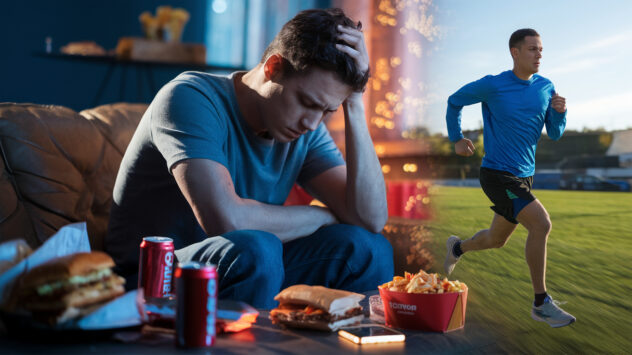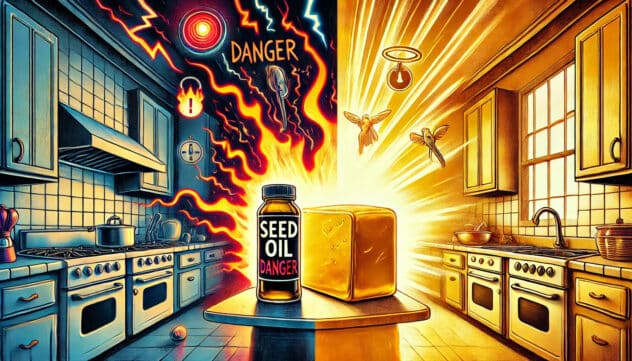Depression Treatment: What Works and What Doesn’t
Let’s be honest. Depression treatment has come a long way from the days when your best option was “just try being happier.” Antidepressants have revolutionised mental health, pulling millions out of the kind of despair that makes basic survival feel impossible. For some, they have been nothing short of a miracle.
But if depression treatment were truly a standard solution for everyone, why do so many people still feel stuck? Why do some feel emotionally numb? Why do they work for a while and then stop? And why do some people try multiple medications before finding one that even remotely helps?
This is not a take your meds or throw them away discussion. This is a let’s look at what actually works, what doesn’t, and why the truth about ‘depression is more complex than we were told’ discussion.
Unlock peak brain performance with science-backed biohacks. Join free now & get your guide for just £4.99 (45% off)!

Depression Symptoms vs Clinical Depression – When Is It More Than Just Feeling Down?
Millions of people search for depression symptoms every month, often wondering if what they are feeling is normal. Everyone has off days. That is not depression. Clinical depression is a full-scale system crash. It is not about feeling sad. It is about feeling nothing. It is exhaustion, guilt, and an overwhelming sense that joy is something for other people.
Signs You Are Dealing With More Than a Rough Patch
- That crushing, never-ending sadness that does not budge
- Losing all interest in things you used to love, including food, hobbies, and human contact
- Feeling like you are moving through thick fog all the time
- Either sleeping all day or not sleeping at all
- Appetite going completely off the rails, either eating everything in sight or forgetting food exists
- The constant feeling that you are failing at life, even when you are not
If you relate, you are not alone. And if you are wondering whether depression treatment could help, the answer depends on what type of depression you are dealing with.
What Actually Causes Depression? Because It Is Not Just a Lack of Serotonin
For decades, we were told that depression was caused by low serotonin. A simple chemical imbalance. Take a pill, increase serotonin, problem solved. Except, that was never actually proven.
- Plenty of people with low serotonin are not depressed
- Some people with high serotonin still are
- Antidepressants work for some, but not because they are fixing serotonin levels
So what is actually happening?
- Brain chemistry does matter, but it is not that simple
- Chronic stress rewires your brain, leading to burnout and emotional shutdown
- Nutritional deficiencies, like low B vitamins, omega three, and vitamin D, play a role
- The gut-brain connection is real. Your gut produces most of your serotonin
- Some people do not have a serotonin problem, they have a dopamine problem; meaning antidepressants will not help them at all
New research is exploring faster alternatives, including ketamine-based therapies, which have shown rapid effects in severe cases.
Depression Treatment Options: What Works and What Does Not
Short answer, no single treatment works for everyone. Long answer, some treatments work better for certain types of depression than others. For those who do not respond to traditional antidepressants, cutting-edge treatments like magnetic brain stimulation are showing promising results, with Stanford researchers achieving remission in nearly 80% of patients.
How Long Do Antidepressants Take to Work?
- Most take four to six weeks before kicking in
- Some people feel a difference in one to two weeks
- Side effects often show up first, like nausea, fatigue, or feeling emotionally flat
Some people feel like a completely different person on antidepressants. Others feel like a slightly more functional zombie.
Why Some People Swear By Them and Others Feel Worse
- For some, they are life-saving. They stabilise emotions, boost motivation, and make life bearable
- For others, they cause emotional numbness. Less sadness, but also less everything
- Some people have to keep increasing the dose or switch medications repeatedly
- Coming off them can be rough. Withdrawal symptoms like brain zaps, mood swings, and insomnia are real
So no, they are not a scam. But they are not a one size fits all fix either.
Natural Depression Treatment: Science-Backed Alternatives
For those looking to complement antidepressants or try alternatives, here are some options that actually have research behind them.
Adaptogens and Nootropics for Mood
- Ashwagandha lowers cortisol and stress hormones. Takes four to eight weeks for effects
- Rhodiola rosea helps burnout and energy crashes. Works within hours but builds over weeks
- Lion’s mane supports brain plasticity and cognitive function. Needs at least six weeks
- Mucuna pruriens is a natural dopamine booster. Starts working in thirty to sixty minutes, but consistency is key
Can you take these with antidepressants? Sometimes, but always check with a doctor. Some herbs, like St John’s wort, can interfere with medication.
Light Exposure and Vitamin D – A Simple Yet Powerful Biohack
- Vitamin D deficiency is linked to higher depression rates
- Sunlight regulates serotonin and dopamine production
- Red light therapy is showing promising results for improving mood
Even psychedelics, once dismissed as dangerous, are making a comeback. A Johns Hopkins study found that psilocybin therapy led to lasting improvements in depression for up to a year.
Depression Treatment: Should You Stop Taking Antidepressants?
No, not without medical supervision or talking to your health provider.
That said, nobody knows your body better than you. Not your doctor, not a psychiatrist, not a well-meaning but misinformed friend. Only you know how you feel day to day, how your brain reacts to medication, and whether the benefits outweigh the drawbacks.
But self-awareness does not mean going rogue. If medication is working, stick with it. If it is making you feel worse, or if you want to explore other options, talk to a doctor about adjusting your approach.
Depression is not just about serotonin. It is about dopamine, cortisol, inflammation, gut health, movement, light exposure, and nervous system regulation.
Most doctors will not tell you that. But now you know.
Join Our Community
Want real, research-backed biohacking tips without the nonsense? Join our community, where we break down the best ways to optimise focus, energy, and mental health.
Disclaimer
This post is for informational purposes only and does not constitute medical advice. Some links may be affiliate links, which help support this site at no extra cost to you.







